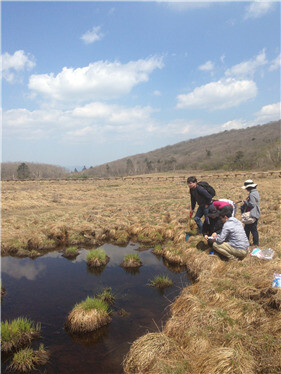Mujechi Swamp. Provided by the National Institute of Biological Resources
In the wetlands of Ulju-gun, Ulsan, a fungus with the ability to decompose small substances such as methane, a major greenhouse gas that causes climate change, and polyvinyl chloride (PVC), a type of plastic, was found. The National Institute of Biological Resources is preparing for a patent application for this material in the first half of the year. The National Institute of Biological Resources, affiliated with the Ministry of Environment, announced on the 6th that in a joint study with Professor Yoon Seok-hwan, KAIST professor, it discovered two methane-decomposing bacteria that decompose methane in Joil-ri Mujechi Wetland, Samdong-myeon, Ulju-gun, Ulsan. Methane is known to be 21 times more capable of affecting warming than carbon dioxide. Mujechi Wetland was designated as an ecology, landscape conservation area, and wetland protection area in 1998. In December 2007, it was registered in Korea’s 6th Ramsar Wetland. Mujechi Wetland is a peat marsh that is a layer of soil that is made up of dead plants in a state that has not been decomposed due to the low temperature. These methanogens are known to decompose up to 90% of methane produced in oxygen-free soils such as peat wetlands. So far, 60 species have been reported all over the world. The bacteria discovered this time are’Methylomonas JS1′ and’Methylocistis MJC1′. Methanogens are bacteria that break down methane into alcohol (methanol) and use it as an energy source to reduce methanol in the environment. In particular, it was confirmed that it has the ability to reduce greenhouse gases by decomposing methane, as well as the ability to decompose small substances that make up polyvinyl chloride, a type of plastic. “It decomposes methane, but it also dissolves vinyl.” However, it cannot dissolve all plastics like PET, and it is possible to decompose polyvinyl chloride. “As only 60 species have been reported to the academic community, we plan to continue further research.” By Choi Woo-ri, staff reporter
newsletter
Every morning, every Thursday day
A friendly newsletter that will save you from the flood of news.
Meet
